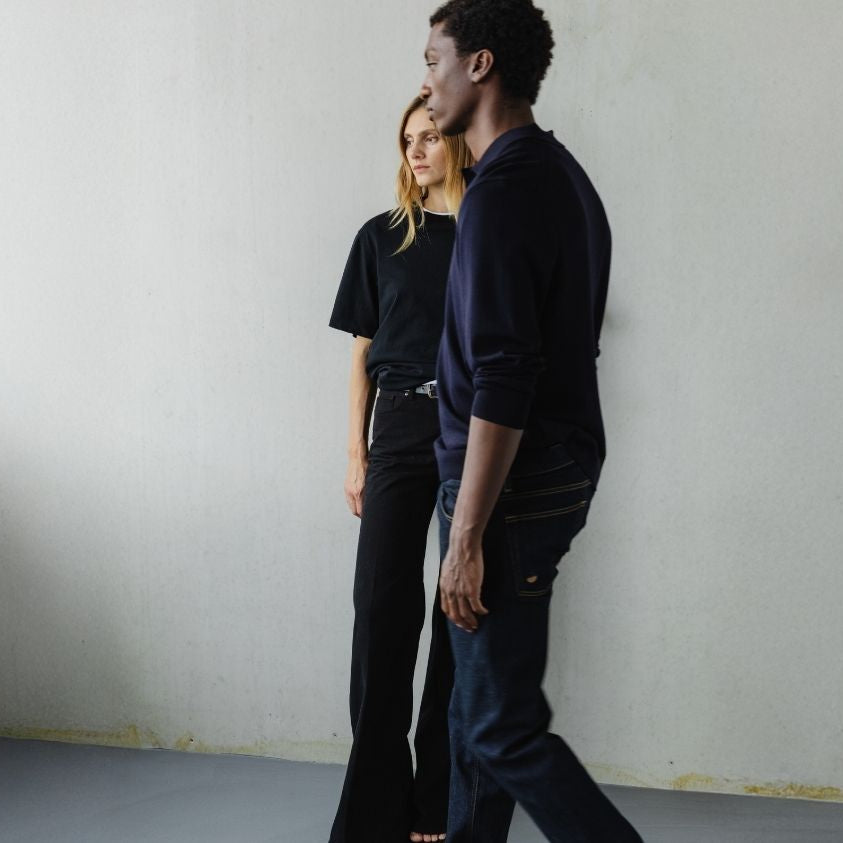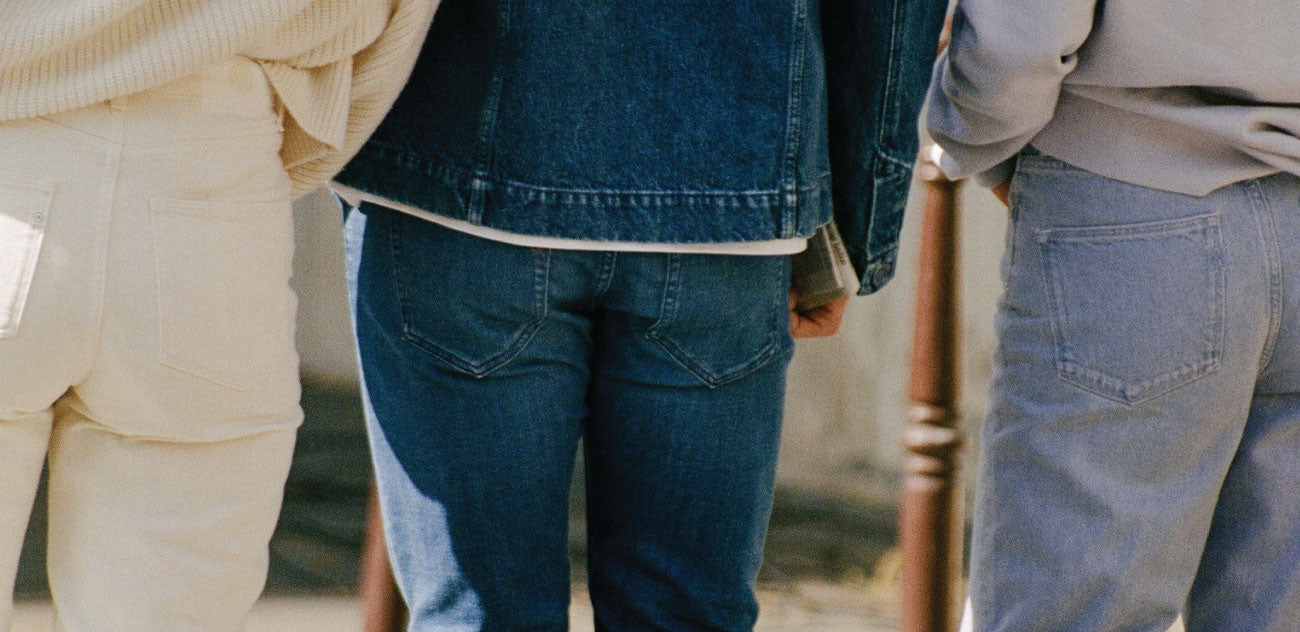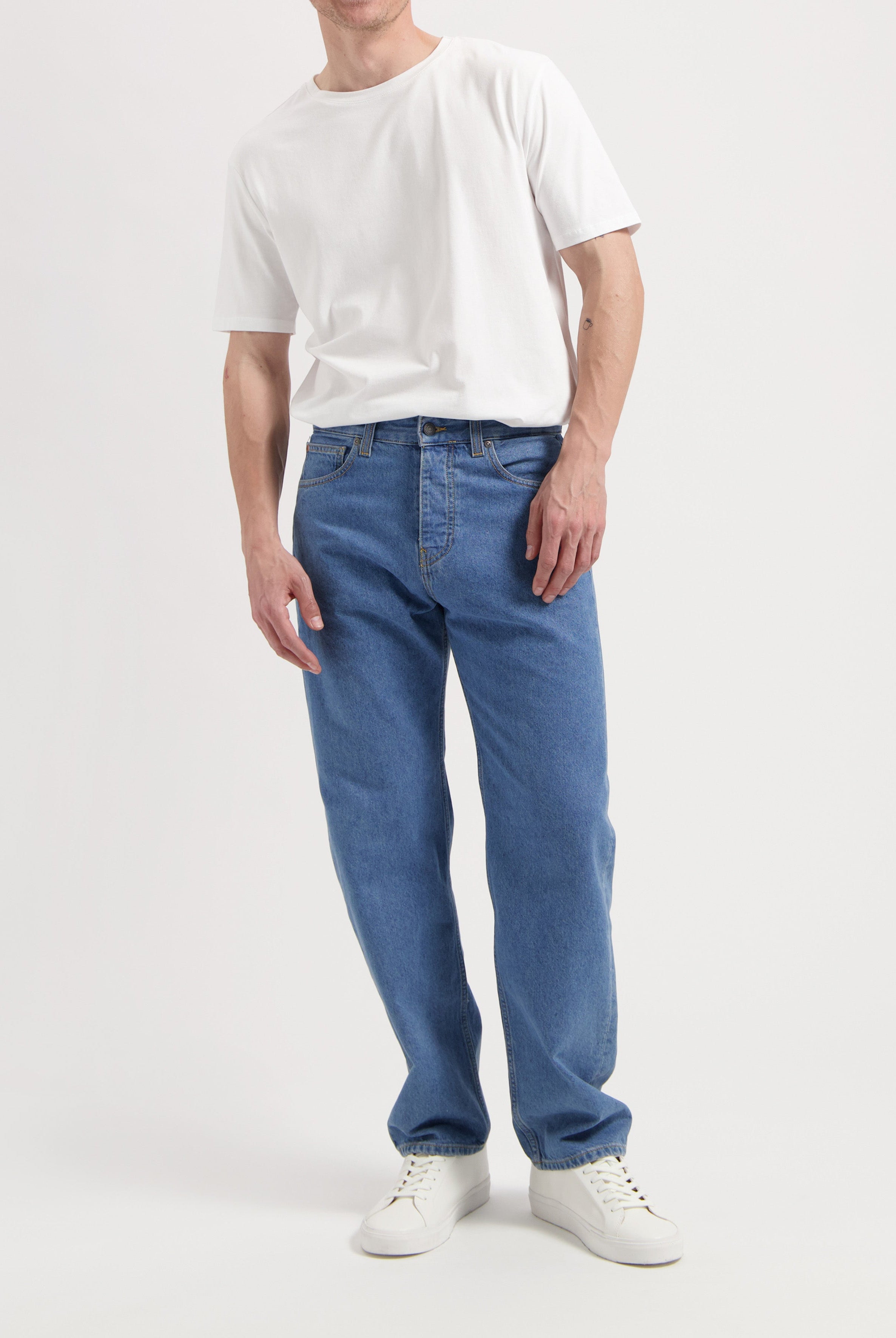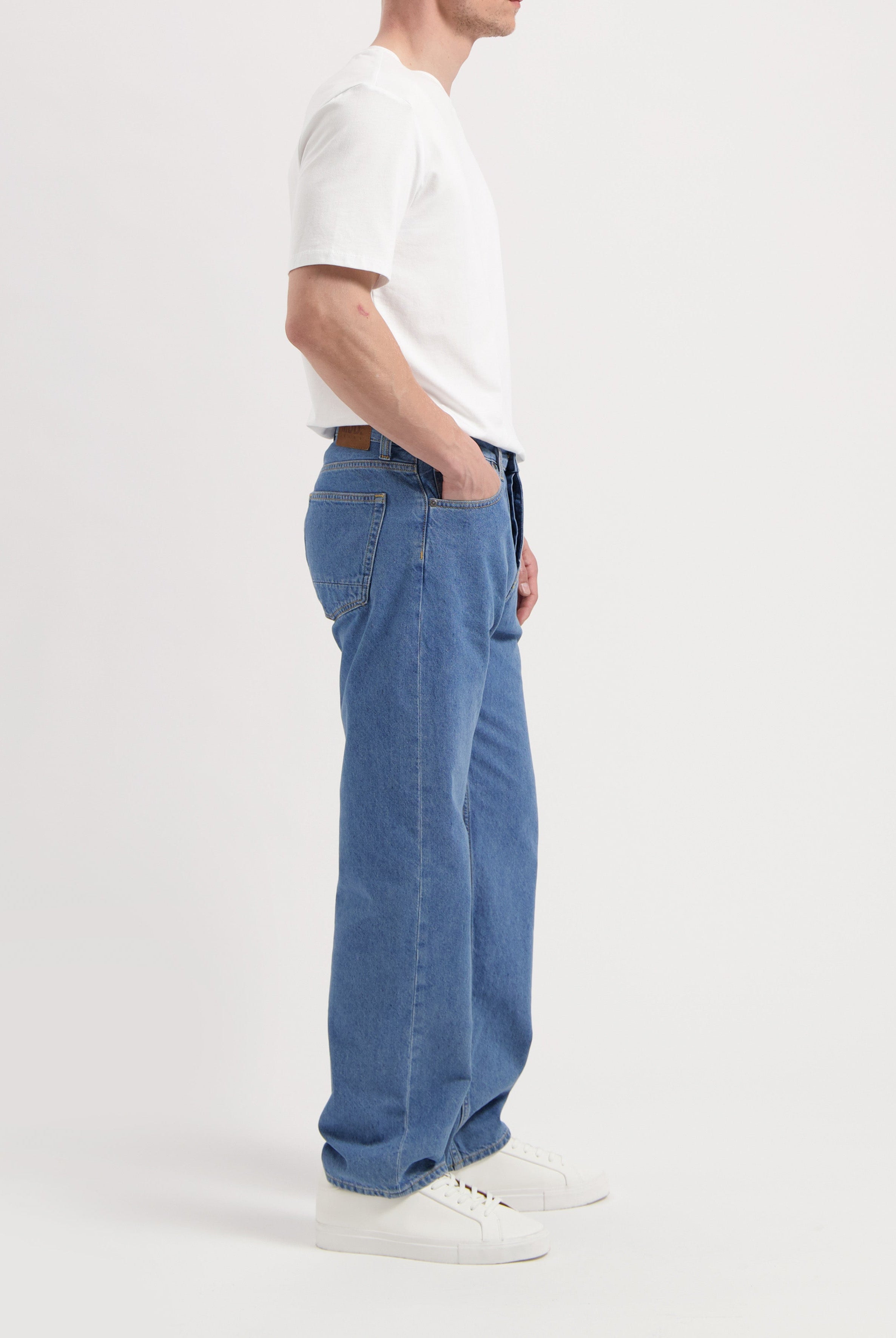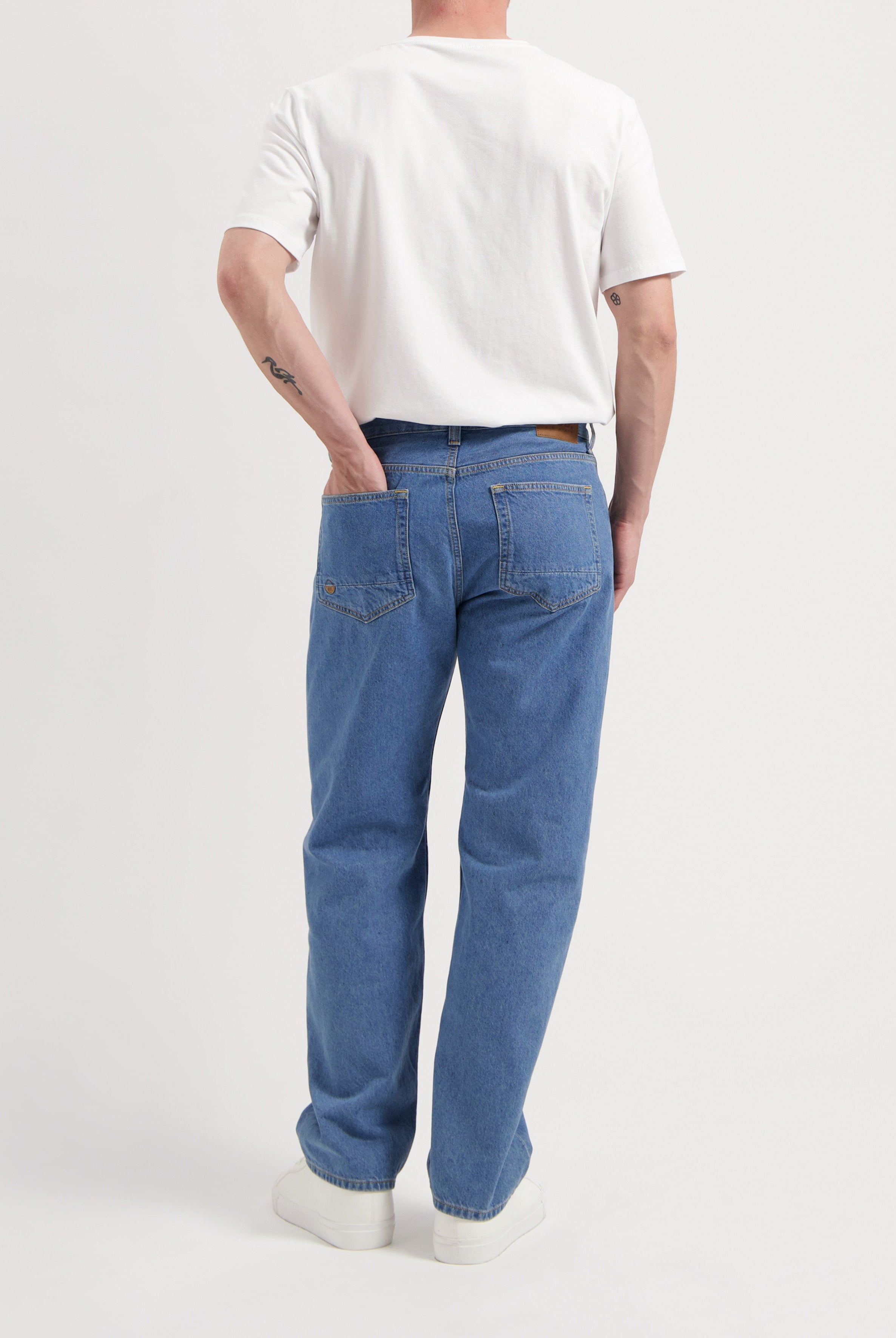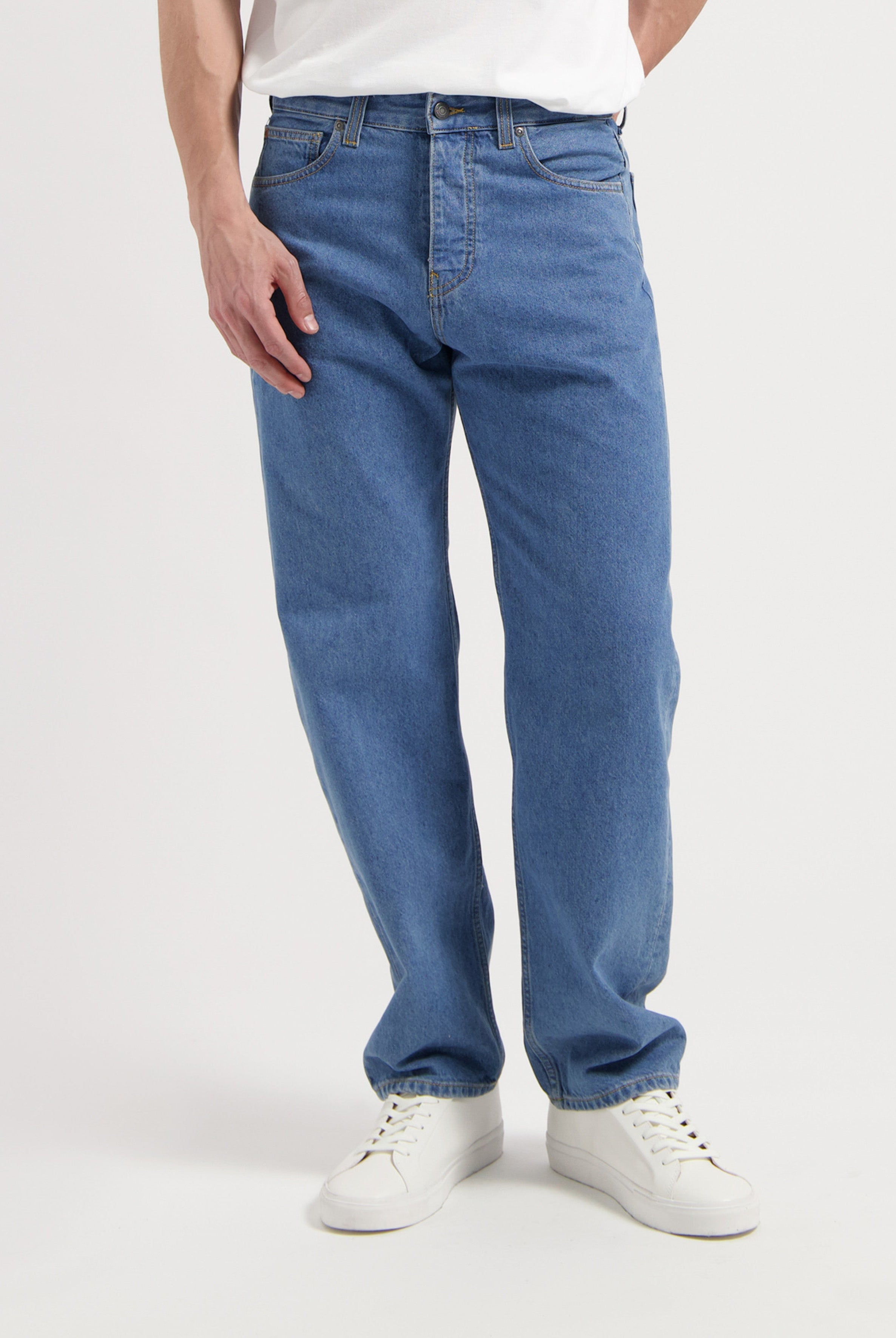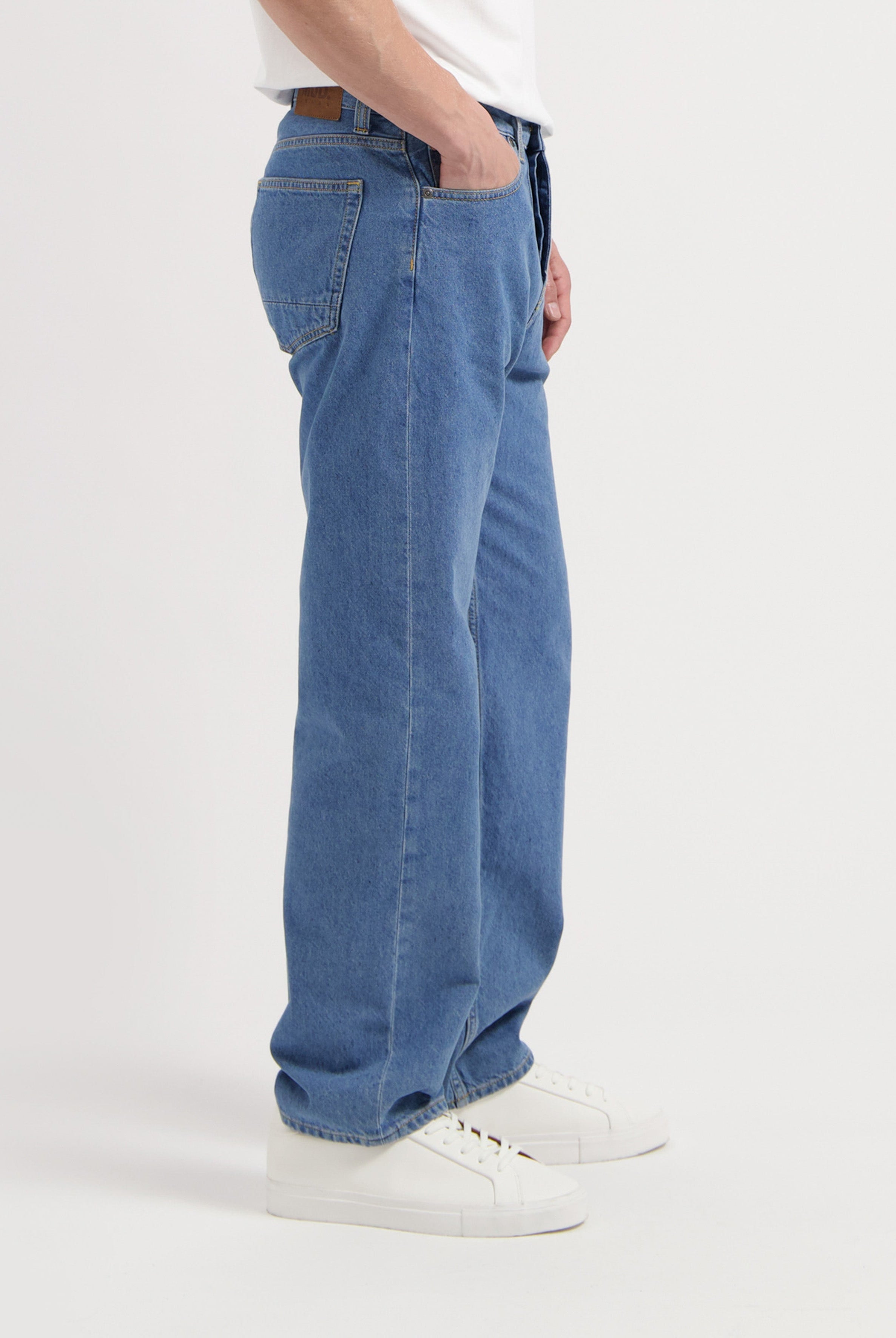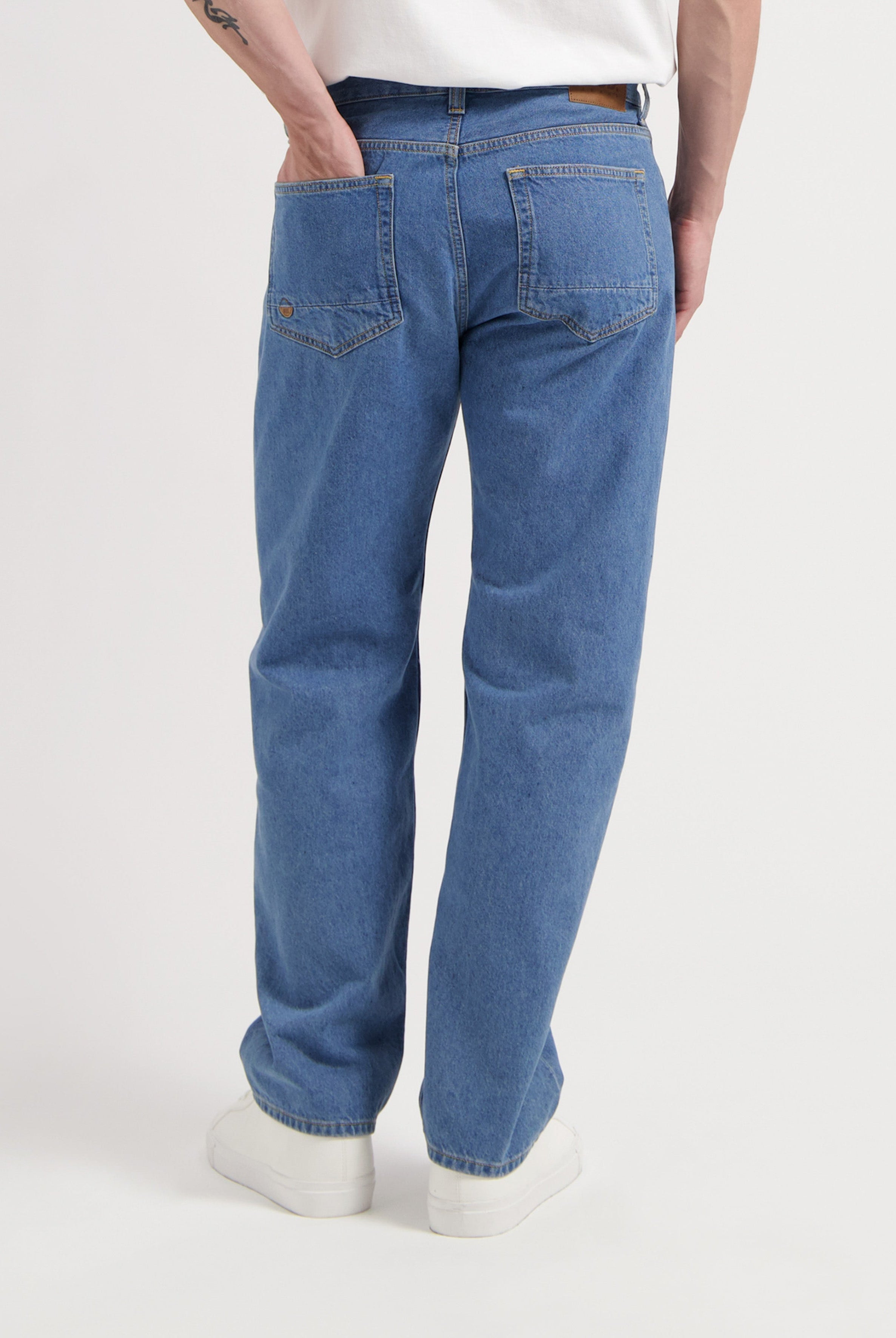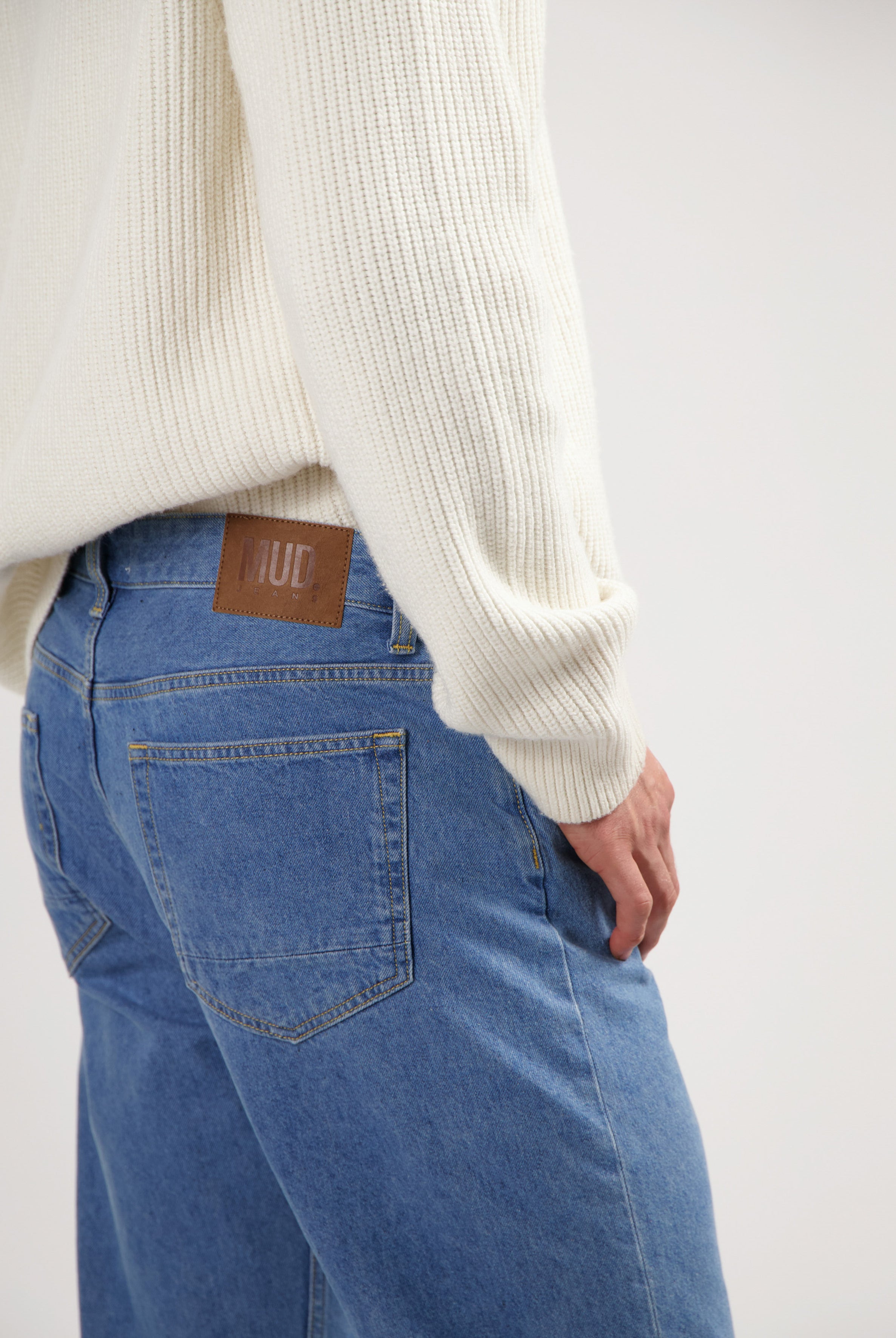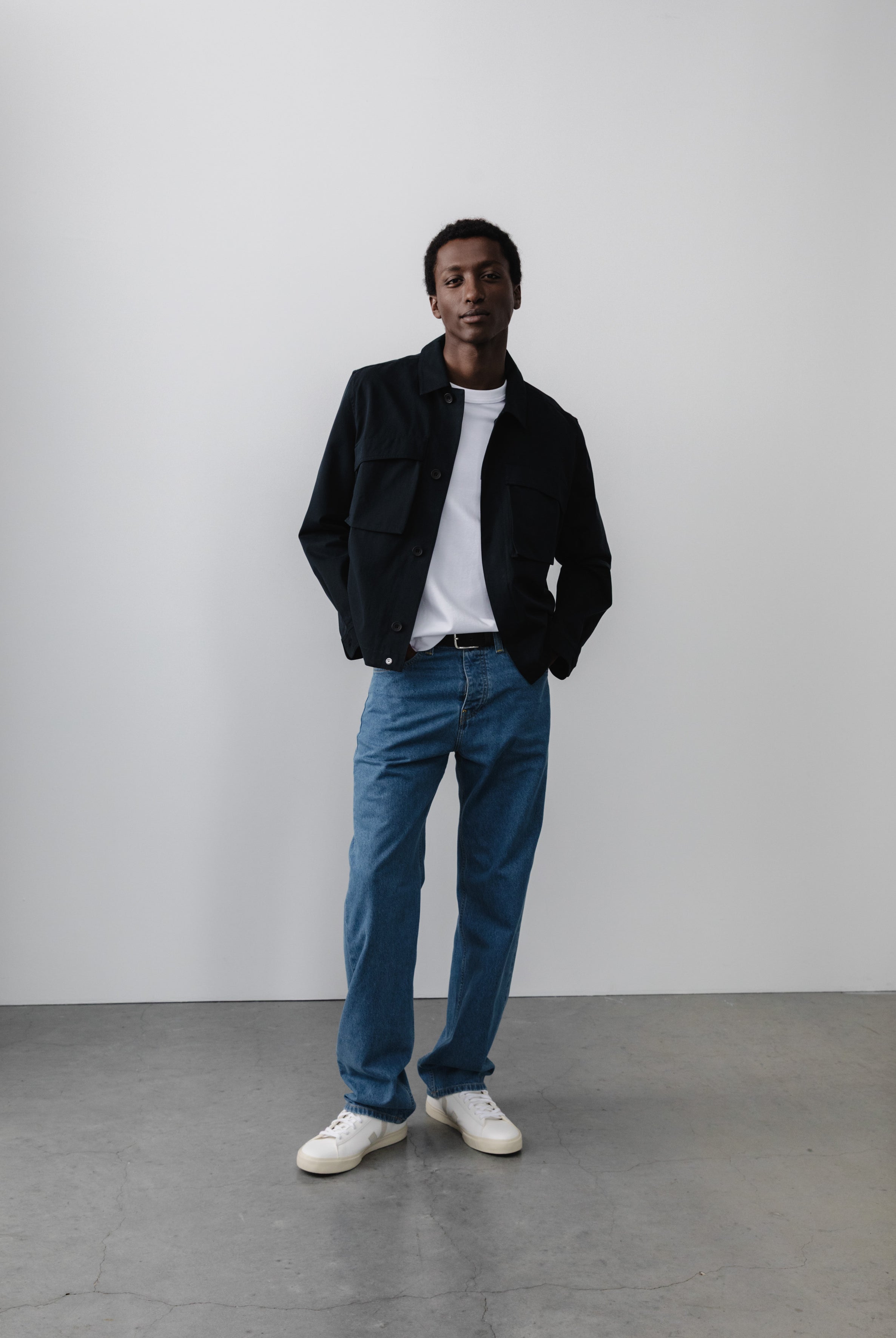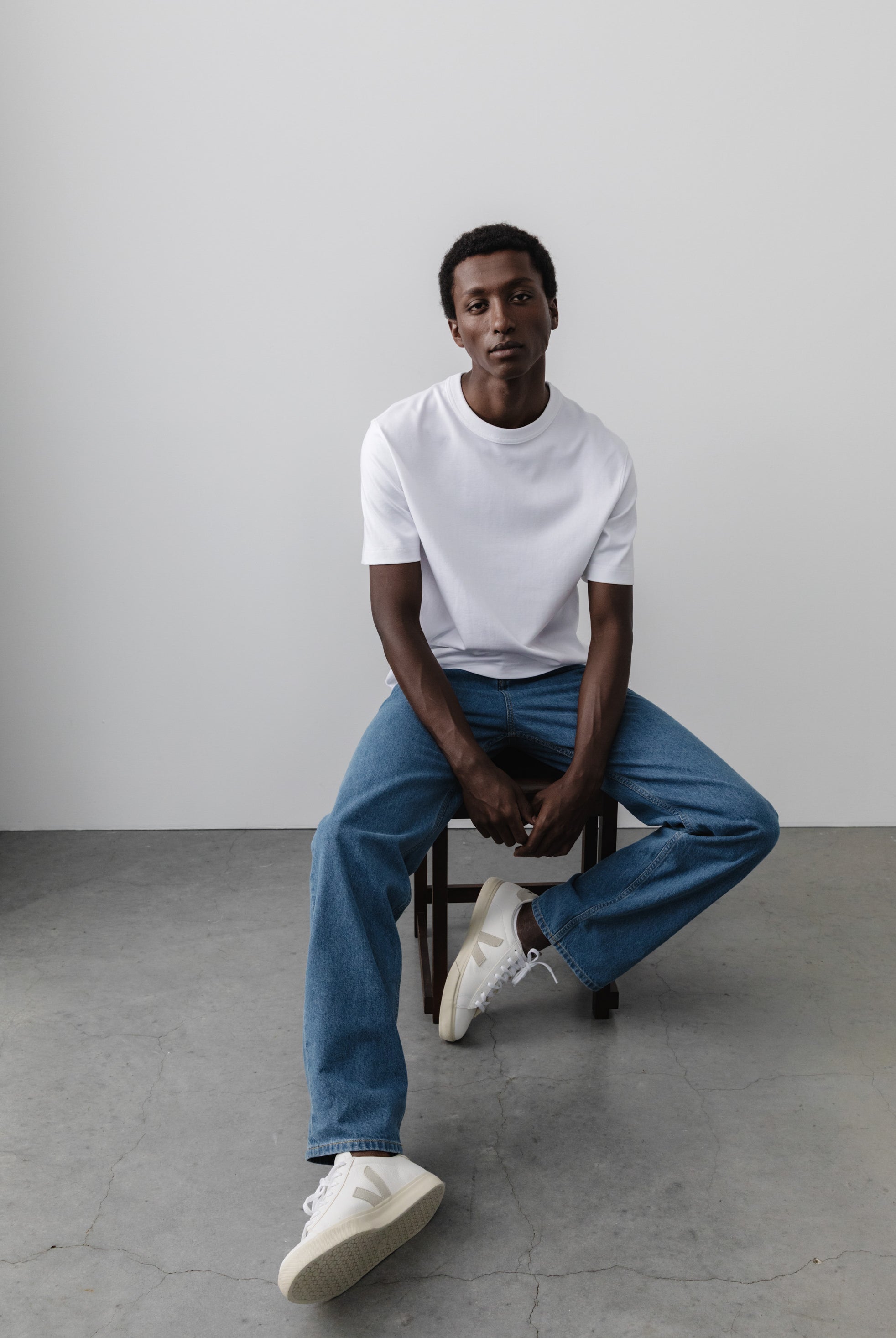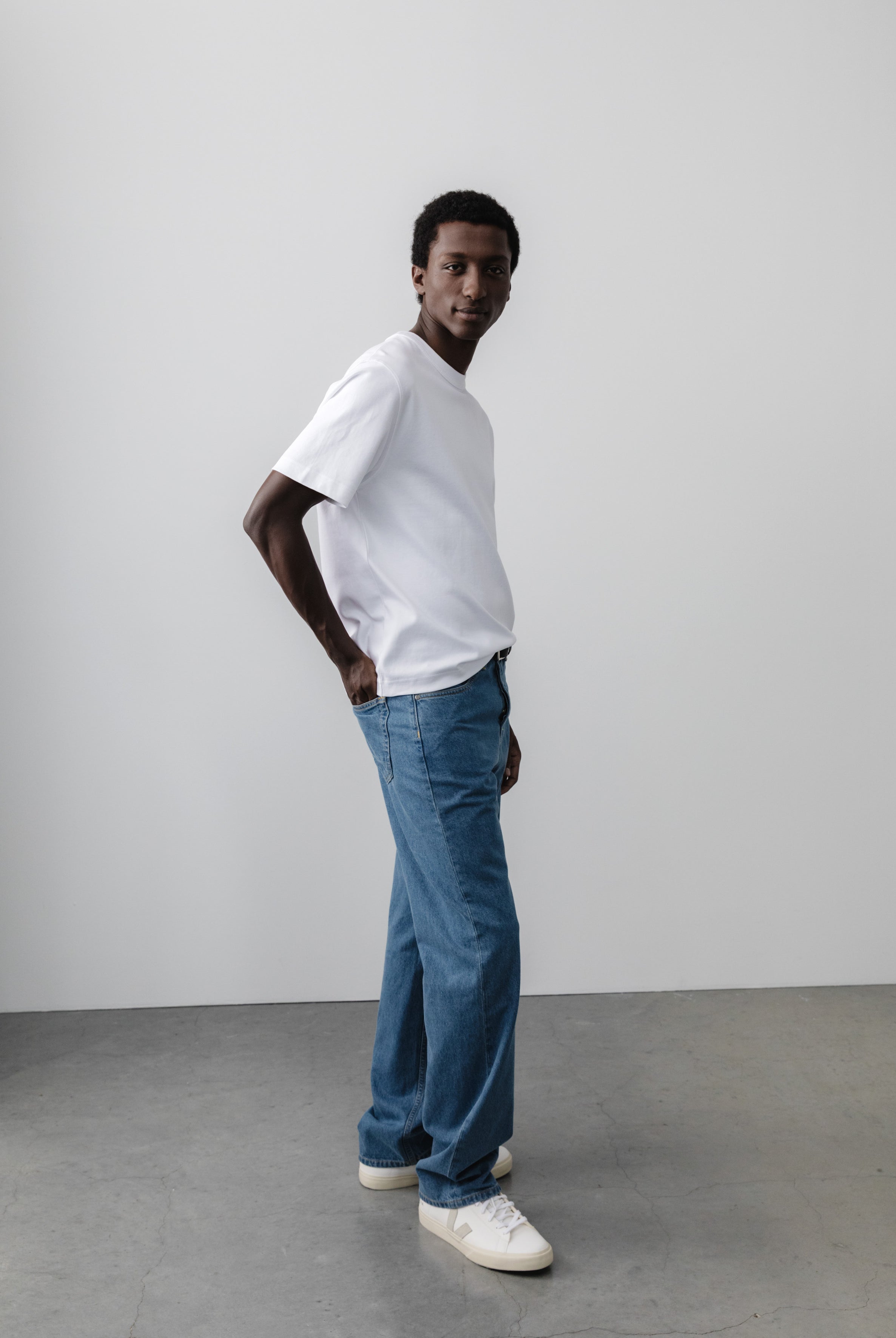Vanaf dag één hebben we de missie om een zero-waste modeproductieproces te creëren, zonder concessies te doen aan design, comfort of pasvorm. In 2015 werd MUD Jeans een B Corp en voldeden we aan de hoge standaarden voor sociale en ecologische prestaties. In dit artikel blikken we terug op onze reis en laten we zien hoe we ons blijven uitdagen om de best mogelijke B Corp te zijn.
Eerst even dit: waar staat B Corp voor?
‘B Corp’ staat voor ‘Benefit For All’. Het is een certificering van de non-profitorganisatie B Lab voor bedrijven die hoge standaarden halen op het gebied van sociale en ecologische prestaties, publieke transparantie en juridische verantwoordelijkheid om winst en doel in balans te houden. Met andere woorden: bedrijven die goed doen terwijl ze zaken doen. Bedrijven met een B Corp-certificering voldoen aan hoge eisen in de volgende categorieën: klanten, gemeenschap, bestuur, werknemers en milieu. Om de certificering te behalen, leggen bedrijven hun toewijding aan een doel voorbij winst juridisch vast in hun statuten.
Waarom is B Corp belangrijk?
De B Corp-certificering vereist dat bedrijven aantonen dat ze écht het verschil maken op het gebied van sociale en ecologische prestaties, verantwoordelijkheid en transparantie. B Corps gebruiken winst en groei als middel voor een groter doel.
Maar dat is niet de enige reden waarom B Corp belangrijk is. De zogenaamde ‘B Corps’ vormen een gemeenschap van leiders en zetten de gouden standaard voor verantwoord ondernemen.
Ze inspireren ook andere bedrijven om een positieve impact te maken, zodat het economische systeem verandert en we bouwen aan een inclusievere en duurzamere economie.
Leuk weetje: de eerste 82 B Corporations werden in 2007 gecertificeerd.

Terug naar de basis: hoe MUD Jeans het B Corp-certificaat behaalde
Voor ons is de B Corp-certificering belangrijk omdat het volledig aansluit bij onze toewijding om het meest duurzame modeproductieproces te creëren met een circulair ontwerp, eerlijke productie, duurzame materialen en minder waterverbruik. Daarom begonnen we in 2014 aan onze reis om B Corp te worden.
Dat was echter makkelijker gezegd dan gedaan. Om de certificering te behalen, moesten we een zeer gedetailleerde en uitgebreide beoordeling doorlopen. We moesten kritisch kijken naar de impact van onze beslissingen op werknemers, klanten, leveranciers, de gemeenschap en het milieu. Ook moesten we een minimale score behalen: alleen bedrijven die boven de 80 punten scoren van de maximaal 200 komen in aanmerking voor B Corp. Na enkele maanden behaalden we in januari 2015 de certificering met een score van 91.2!
Vooroplopen: de hoogst beoordeelde B Corp in ‘Milieu’
B Corp zijn is geen eindpunt. Bedrijven moeten hun processen blijven verbeteren om hun certificering te behouden, met hercertificering elke 3 jaar. In 2020 verhoogden we onze score van 91,2 naar 124,7 punten. In 2022 werden we door B Lab uitgeroepen tot ‘Best for the World’ in de categorie ‘Milieu’, wat betekent dat onze score in de wereldwijde top 5% lag. Daarna hebben we het hercertificeringsproces opnieuw voltooid en blijven we een gecertificeerde B Corp.
Werken als een B Corp: elke dag waarmaken
Elke dag zetten we ons in om beter te zijn voor de wereld. We zijn trots op de volgende punten:
1. Oude jeans recyclen
We nemen versleten jeans terug om te recyclen en gebruiken de vezels om nieuwe jeans te maken. Zo voorkomen we dat onze producten op de vuilnisbelt belanden en verkleinen we onze ecologische voetafdruk door minder nieuwe katoenproductie. Het recyclen van oude jeans verkleint ook onze ecologische voetafdruk door de behoefte aan nieuwe katoenproductie tot een minimum te beperken.
Goed om te weten: Heb je een versleten jeans? Lever hem bij ons in en ontvang €10 korting op je nieuwe jeans. De enige voorwaarde is dat de jeans voor minstens 96% uit katoen bestaat.
2. Lease a Jeans
Om onze circulaire aanpak verder te stimuleren, hebben we het ‘Lease a Jeans’-concept geïntroduceerd. Met dit unieke systeem huur je een jeans voor een klein maandelijks bedrag in plaats van hem te kopen. Na twaalf maanden kun je de jeans terugbrengen, omruilen voor een ander model of houden.
3. Minder schadelijke productietechnieken
We blijven innoveren om ons productieproces te verbeteren met minder schadelijke technieken. Zo gebruiken we laser en ozon in plaats van PP-spray, chloor en stonewash. Daarnaast bespaart een nieuwe schuimverftechniek, ontwikkeld door het Spaanse Tejidos Royo, 100% water en gebruikt het 86% minder chemicaliën. Met succes, want we gebruiken in het hele proces 90% minder water en stoten 75% minder CO₂ uit dan de industriestandaard. Meer hierover lees je in ons duurzaamheidsrapport.
4. De eerste 100% post-consumer gerecyclede jeans
In 2019 lanceerden we het ‘Road to 100’-project. Ons doel: een jeans maken van 100% post-consumer gerecycled katoen. Oftewel: nieuwe jeans maken zonder nieuw katoen te gebruiken. Dankzij voortdurend onderzoek hebben we grote stappen gezet en werken we nauw samen met onze partners om dit te realiseren.
Kijk: Leer meer over duurzaamheid en onze reis in onze mini-docuserie op YouTube.
5. Kleine en transparante toeleveringsketen
We houden onze toeleveringsketen klein en transparant, zodat we nauwe relaties kunnen onderhouden met al onze partners. Via deze samenwerkingen en een gedragscode zorgen we ervoor dat iedereen die betrokken is bij het maken van onze jeans eerlijk wordt behandeld en in een gezonde omgeving werkt.

Wat is de volgende stap? Waar we willen verbeteren
Er is altijd ruimte voor groei en bij MUD Jeans kiezen we voor vooruitgang boven gemak. Daarom blijven we onszelf verbeteren. Dit willen we bereiken:
1. Welzijn van medewerkers
Circulaire jeans maken betekent ook een duurzame manier van werken. Soms betekent dat even stilstaan, ademhalen en successen vieren om een positieve impact te behouden. We willen ons team ook tijd geven voor persoonlijke groei. Bij MUD Jeans blijven we investeren in trainingen, taalcursussen en kennisontwikkeling voor het welzijn van ons team.
2. Positieve milieu-impact
Ons tweede verbeterdoel is een positieve impact op het milieu. We willen het resterende biologische katoen in onze jeans vervangen door gerecycled katoen en sterker pleiten voor beleidsverandering. Met name voor Extended Producer Responsibility, waarbij producenten financieel of fysiek verantwoordelijk zijn voor hun gebruikte producten. Ook willen we beter meten waar we staan qua afvalproductie en circulariteit in onze toeleveringsketen.
3. Diversiteit en inclusie
Tot slot willen we van MUD Jeans het meest inclusieve en diverse bedrijf maken dat we kunnen zijn. Niet alleen in ons productaanbod, maar ook in onze toeleveringsketen en de content die we maken.
4. Road to 100 Nieuwe Mijlpaal
In 2025 verwachten we een nieuwe mijlpaal te bereiken in het percentage gerecycled materiaal in onze commercieel verkrijgbare jeans.
Steun ons als B Corp door duurzame jeans te kopen
B Corp zijn is geen eindbestemming – het is een reis. En voor ons stopt die reis niet. Maar we kunnen het niet alleen. Elke keer dat je kiest voor B Corp-merken, stem je voor een betere wereld. Samen kunnen we de mode-industrie veranderen. Door ons te steunen en duurzame jeans te kopen, maken we samen het verschil.


